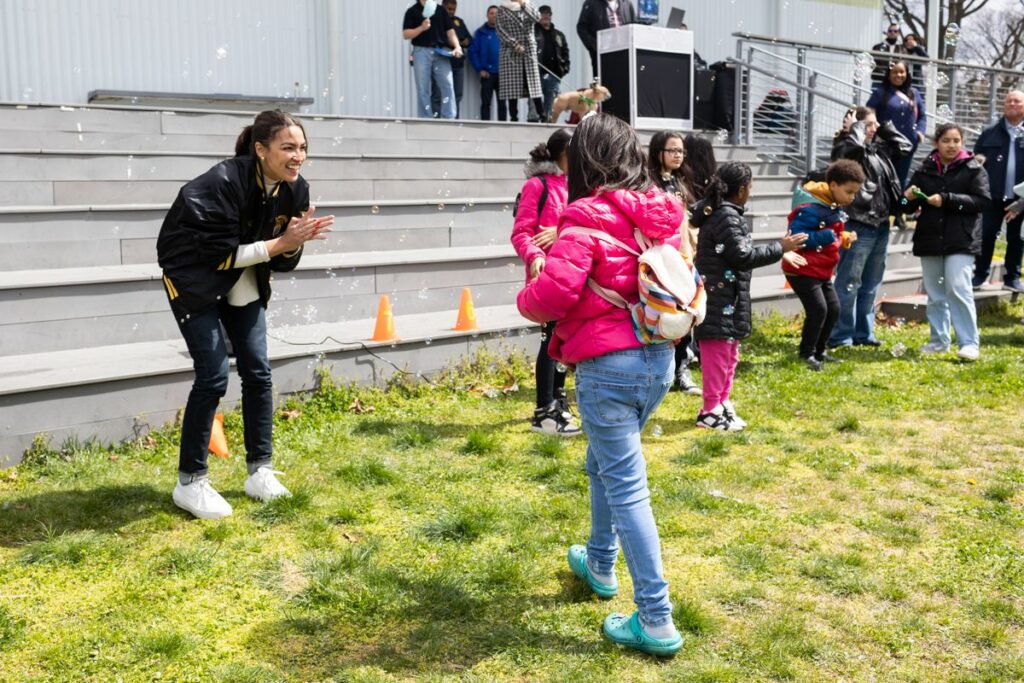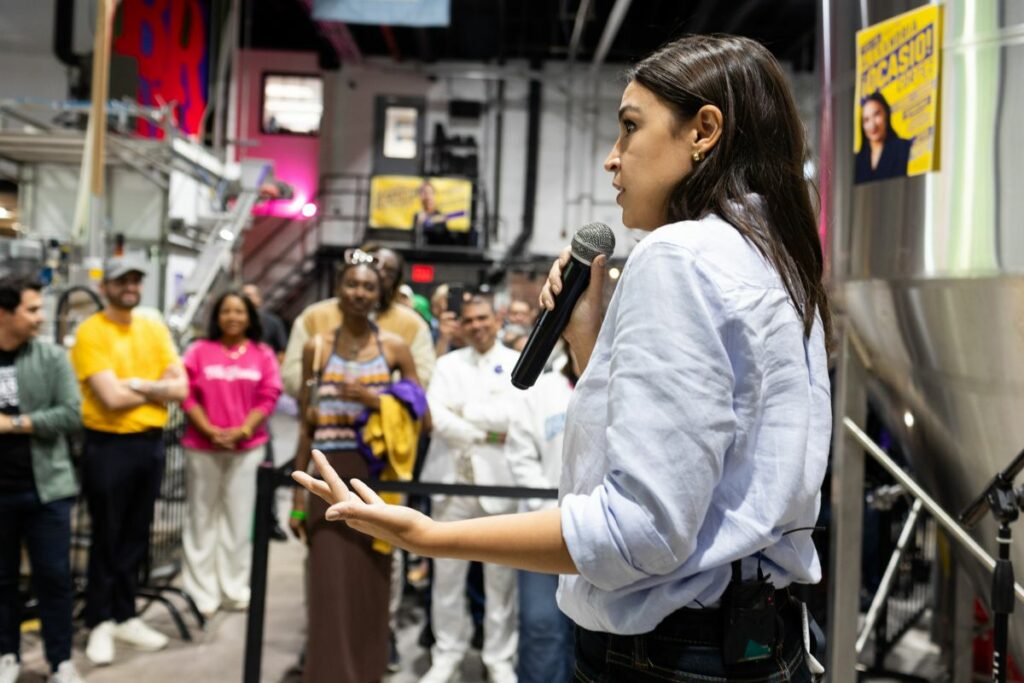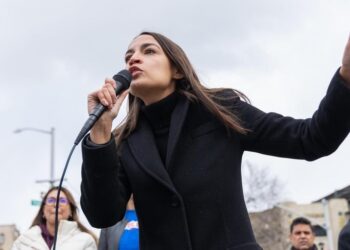To me, I think the test of a community is — whether it’s physical or digital — are you there for one another? Because this is how we deepen meaning in our lives.
Let’s say you reposted something — that’s wonderful. Let’s say you showed up to a protest. That’s great, too.
But when the signs are put down and we all go home, what is lasting? Do you have the kind of friends that you can volunteer with?

I represent Rikers Island, which is a horrific jail. It’s probably one of the largest sites of human rights violations for the incarcerated in the United States. And there are a lot of people that post about this, a lot of people that show up to protest this. But when I think about efforts in this space, I think of the people who have, for example, gathered toys to send to children of the incarcerated. They will coordinate letters from their parents that may be incarcerated.
They’re actually healing bonds and trauma in our community. It is something that requires actual relationship. And that can seem really, really hard to get involved in. But it is also some of the most transformative experiences we can have.
One of the most important things to communicate is that there is no action that’s too small.
I think sometimes people talk themselves out of things because they feel like: “What can my one letter do? What can my one call to Congress do? What can my one donation or me showing up to a toy drive, or me showing up to an event actually do?”
It does a lot. Because it inspires other people to show up. It’s like each drop in the ocean thinking that it’s meaningless, when it’s actually the most powerful force on the planet.
And that’s the key. If you’re speaking up online, that’s wonderful. How are you integrating this into your life?
That, I think, is where we start to see real change happen.
Thank you for reading.
In solidarity,
Alexandria













